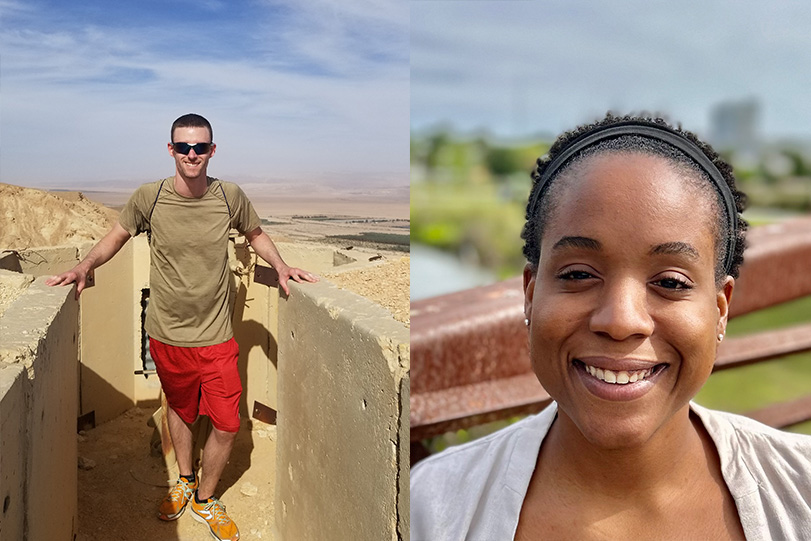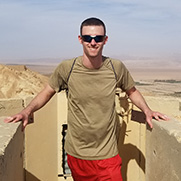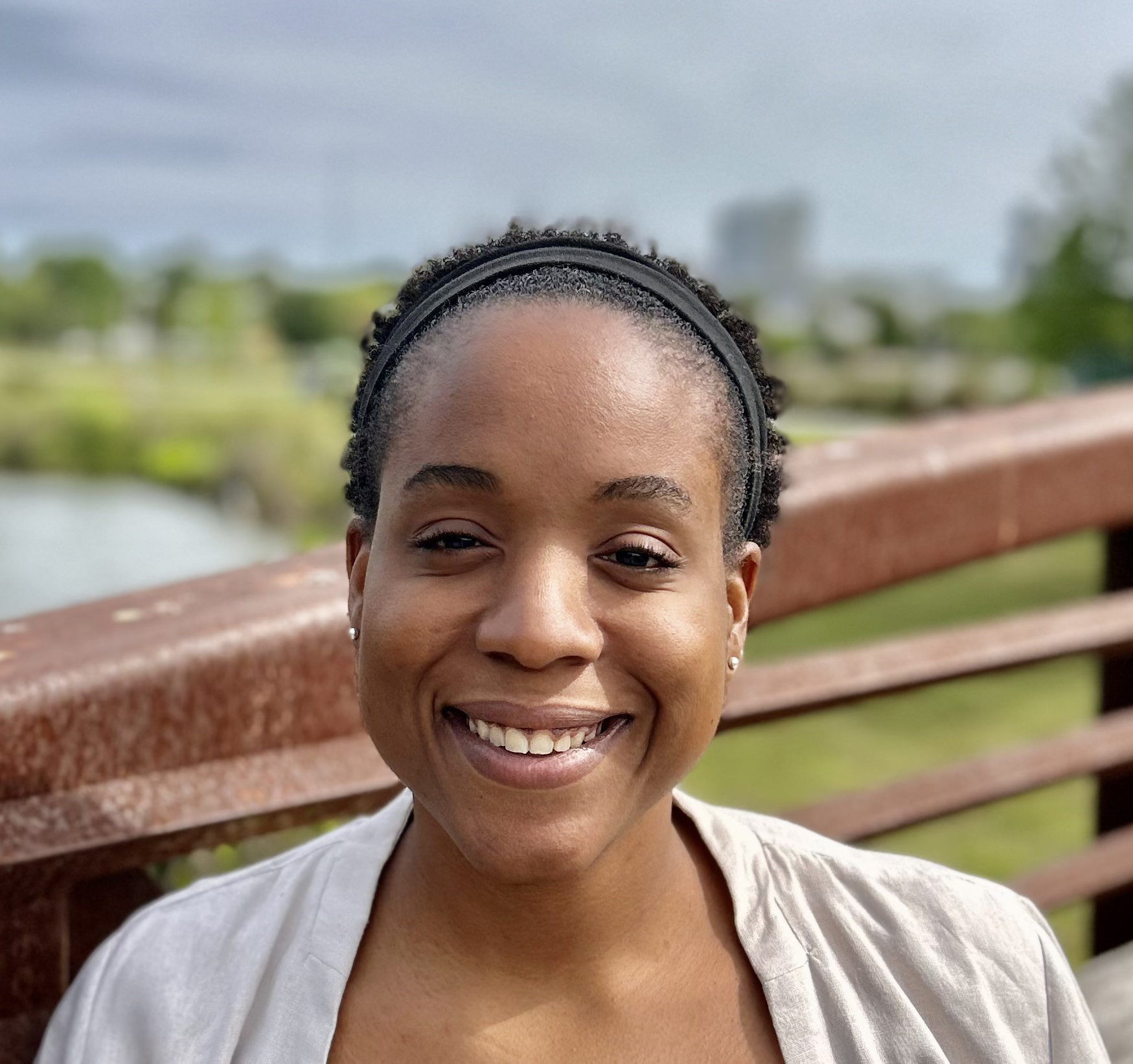Where are they now? Update on the BSEEE Class of 2013
As EEE head Dr. John W. Sutherland notes, this first graduating class “took a risk on a newly launched program and helped pave the way for all the amazing EEE accomplishments that have happened over the last ten years.”
 David Zelinka (left) and Taisha Venort (right) are proud graduates of our first-ever BSEEE class.
David Zelinka (left) and Taisha Venort (right) are proud graduates of our first-ever BSEEE class.
Where are these trailblazing students now? The Class of 2013 is thriving in a broad range of fields.
Siddhesh Dere, Midwest Manager, CKS Packaging Inc.
Jennifer Helfrich, Senior Manager of Data and Analysis, Purdue University Human Resources
Kelsey Hunter, Engineer, Heapy Engineering
Dianne Kaminsky, Senior Environmental Engineer, Burns & McDonnell
Minju Lee, Environmental Team Professional, Samsung Electronics
Alyssa Martin, Environmental Engineer, International Paper
Clinton Pflum, Environmental Engineer, CF Industries
MunKyo Suh, Business Analyst in Liquefied Natural Gas, Shell UK
Taisha Venort, PhD Candidate, University of Florida
David Zelinka, Climate Data Specialist at Opera; Founder and Consultant at Civitas Systems
We sat down with Class of 2013 graduates David Zelinka and Taisha Venort for a detailed update on their progress and accomplishments over the last ten years.
David Zelinka turned his passion for systems thinking into a lifelong career.

Climate Data Specialist at Opera; Founder and Consultant at Civitas Systems (Boulder, CO)
PhD, Civil Systems Engineering, University of Colorado Boulder (2019)
MS, Global Engineering, University of Colorado Boulder (2019)
MS, Environmental and Sustainability Engineering (2016), University of Colorado-Denver (2016)
BS, Environmental and Ecological Engineering, Purdue University (2013)
Dave Zelinka is a data-driven interdisciplinary engineer, systems thinker, and complexity scientist who creates insight from chaos. His passion is to understand and address humankind’s most pressing issues, including sustainable energy, climate change, international development, conflict, peacebuilding, corruption, and urbanization.
“EEE helped evolve and adapt my worldview, expand my capacity to understand complex issues, and prepared me to be the systems-thinking expert I am today.”
David’s research specializes in applied complexity science, system dynamics, network analysis, sustainable development, sociopolitical systems, data science, the water-energy-land-food nexus, grounded theory, systems philosophy and ontology, sustainable energy, corruption, and peace engineering.
“The climate, environment, and ecological curriculum provided by EEE are wholly unique,” David claims. “Ten years later, I still reference coursework, books, and projects from my BSEEE degree.”
David holds a hybrid position with Optera, where he specializes in corporate GHG accounting for all direct, indirect, and value-chain emissions and helps companies to develop emission-reduction strategies. He is also the Founder and CEO of Civitas Systems, a consulting company that merges systems approaches and data science to solve problems in complex systems—turning his passion into a lifelong career.
“Always be striving to learn something new or advance your current skills. They could be monetized in surprising ways,” David advises.
As a consultant, David has provided expertise and research support to the United Institute of Peace (USIP); applied network science for various justice, governance, and democracy projects in Western Africa and the Balkans; and worked with the Santa Fe Institute, an interdisciplinary research institute dedicated to applying complex adaptive systems to understand and address problems that transcend the boundaries of traditional academic disciplines.
His advice to current EEE students?
“If you aren’t tired of saying or hearing the word sustainability, you soon will be. Get a thesaurus.”
David currently lives at the base of the Rocky Mountains in Boulder, Colorado, where his hobbies include science fiction, brewing beer, and turning his apartment into a cat jungle.
“Remember that mental health is as important as physical health,” David adds. “Don’t neglect either.”
Taisha Venort relentlessly pursues solutions to global agricultural challenges.

PhD Candidate, University of Florida
MS, Ecological Sciences and Engineering, Purdue University (2017)
BS, Environmental and Ecological Engineering, Purdue University (2013)
Taisha is currently completing her PhD in Agricultural and Biological Engineering (ABE) at the University of Florida. Her research focuses on agricultural intensification in smallholder systems of sub-Saharan Africa, analyzing linkages between producers’ livelihoods, agricultural decision-making and soil-based ecosystem services at the field and landscape scales.
She has no regrets about gambling on a brand-new undergraduate degree program.
“I am very grateful for having chosen on EEE,” says Taisha. “The plan of study was crafted to provide a broad, interdisciplinary perspective. Not only were we taught by very passionate instructors, but we were also given unmatched guidance through professional practice seminars and senior design sessions.”
Prior to beginning her PhD in 2019, Taisha worked as an agricultural extension specialist in her home country of Haiti.
“Throughout my career, I’ve planned and implemented collaborative field research projects, where I’ve developed sampling plans, data collection materials, and identified data analyses tools to help answer research questions in international agriculture,” explains Taisha.
Her advice to current EEE students?
“I could be biased, but this is the best field and program to be in right now. Take the time to feel blessed for where you are and what you’ve accomplished, and continue to pursue your passions relentlessly. There is so much at your fingertips to be the best professional you can be. Never shy away from continuously seeking mentorship. It pays off.”
In the future, Taisha aims to continue advocating for research priorities that are relevant to global food security through collaborative projects across industry and academia.
